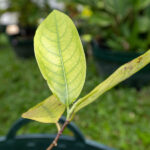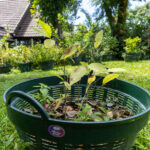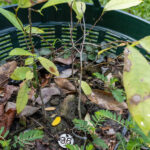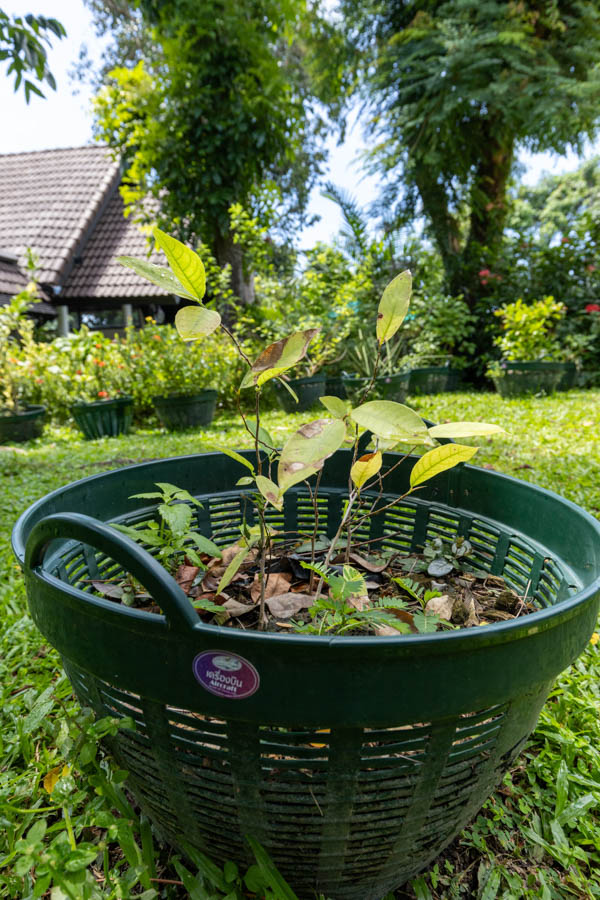ตีนเป็ด (Teen Pet)
Family: Apocynaceae
Alstonia scholaris, known in Thai as ตีนเป็ด (Teen Pet) and commonly called the Devil Tree or Blackboard Tree, is a tall evergreen native to tropical Asia. It is a sacred and medicinal tree long used in Ayurvedic and Thai traditional medicine. Its bark is particularly valued for its role in treating fever, malaria, and respiratory infections.
Botanical Characteristics
This medium to large tree can reach heights of 20–30 meters. The leaves are arranged in whorls, elliptic in shape with pronounced pale veins. The bark is grey and exudes a milky latex when cut. Fragrant white flowers appear in clusters, followed by slender pods containing silky seeds.
Use in Thai Traditional Medicine
The bark, known as Sat-tian-bai in traditional pharmacopeia, is used as a febrifuge, tonic, and anti-malarial. Decoctions are taken to reduce fever, treat dysentery, and relieve asthma or chronic cough. The latex has been applied externally for skin ailments, though it is used with caution due to its potency.
Preparation & Dosage
The bark is typically boiled (5–10 g per 500 ml water) and taken in small doses for fever or weakness. The decoction is bitter and sometimes mixed with honey or other herbs like Andrographis paniculata for enhanced effect.
Cultural & Spiritual Role
In Thai and Indian culture, the Devil Tree is often planted near temples or schools, symbolizing knowledge and protection. Despite its ominous name, it is regarded as a guardian tree that wards off illness and negative energy.
Cultivation Notes
Alstonia scholaris grows well in tropical climates with ample sun and moisture. It is adaptable to different soil types and thrives as a shade tree in gardens and public areas. In the KBE Thai Medicinal Herb Garden, it represents the link between large canopy trees and deep-rooted medicinal traditions.
Historical Context
The species was used in the Ayurvedic system under the name “Saptaparna,” mentioned in ancient texts for treating fever, debility, and respiratory problems. It remains in modern herbal pharmacopoeias across South and Southeast Asia.
Disclaimer: This information is provided for educational and historical purposes only. It is not intended as medical advice. Always consult a qualified healthcare professional before using any herbal preparation.




